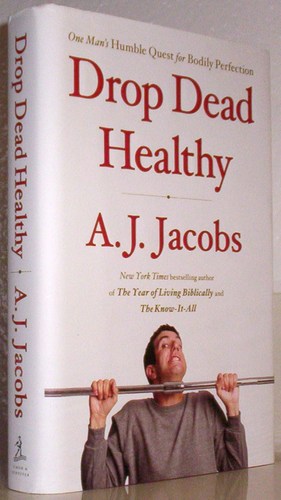A retired school teacher is found dead in the woods. The cause is not natural, but it's difficult to tell if she was felled by foul play or a hunting accident. The school teacher is Miss Jane Neal, who lived in a small Québécois village just north of the US border. She seems to be without enemies and her life seems void of motives for murder. The only details that are out of ordinary for the town "spinster" is that she's never let any of here friends into her house beyond the kitchen and one of her paintings was just recently accepted for an art show.
 |
| The first of series. Whose excited? |
Chief Inspector Armand Gamache and his team, all from the Sûreté du Québec (the provincial police force of Québec) are responsible for finding the truth, and, of course, they do. This is a murder mystery as a work of fiction, after all, and not as a true crime tale. The Chief Inspector is man I quite like. He's capable and thoughtful, and he takes responsibity for mentoring his team. He is also a man of principles. I look forward to reading more of his cases.
What I like a bit less is the opaque mystery writer convention where the text tells you that something happened but doesn't tell you WHAT happened. This is meant to keep the mystery mysterious and makes it more difficult for the reader to solve the crime or second-guess the detective's next steps. I usually find it smug and pompous. For example, the Chief Inspector spends some time in a bookstore lost in heavy thought and deep conservation about the very meaning of life and loss. When he goes up to purchase a book, this is what the author shares with us:
"Ten minutes later Armand Gamache was sitting at the table by the Bistro window looking out on to Three Pines. He'd bought just one book from Myrna, and it wasn't Being or Loss. She'd seemed slightly surprised when put the book next to her till."
It's many paragraphs later that you discover what book the Chief Inpsector choose and why. Perhaps I'm too literal minded, but I find writing like that unnecessarily coy. (Being and Loss were the books Gamache had been discussing in detail.) There's another instance toward the end of the story where potential evidence is discovered in a hiding place and the author refuses to reveal what it actually is. I've never appreciated being allowed to tag along with the main characters except for key moments where they use slight of hand to disguise their actions. This always manages to take me out of the moment and my own imagination to remind me I'm reading a book. I can't imagine that's what the author wants.
Having said that, I really enjoyed this book. It's a sumptuous feast of words, thoughtful and capable like Gamache. It opens with the following passage:
"Miss Jane Neal met her maker in the early morning mist of Thanksgiving Sunday. It was pretty much a surprise all round. Miss Neal's was not a natural death, unless you're of the belief everything happens as it's supposed to. If so, for her seventy-six years Jane Neal had been walking toward this final moment when death met her in the brilliant maple woods on the verge of the village of Three Pines."
Doesn't that just make you sigh with satisfaction? I could read that thirty times and not get tired of it.
The text later brings us this quotation:
 |
| Basilica di San Francesco |
"It always struck Gamache as paradoxical that churches were gloomy. Coming in from the sunshine it took a minute or so to adjust. And even then, to Gamache, it never came close to feeling like home. Churches were either great cavernous tributes not so much to God as the wealth and privilege of the community, or they were austere, cold tributes to the ecstasy of refusal."
Those words really made me think about the church as a people versus the buildings where people worship. As I'm traveling around Italy, I'm frequently stepping into churches. Some resonate and feel like holy places. Others feel like a tribute to hubris or a great need for control. Some fit my definition of beauty and then seem a fitting tribute to God's earth (i.e., the Basilica di San Francesco in Assisi). Other's violate my sense of order (i.e., Cattedrale di Santo Rufino also in Assisi).
All in all, I'm thrilled that my roommate in Italy suggested Louise Penny's works to me. Still Life is the first of a series, and the ninth book will be released later this year. I've already purchased the second, A Fatal Grace, and can't wait to start it.



.JPG)







